Regional differences pose interesting questions. Here are some reflections from Anvi Hoàng as she traveled for two months in Vietnam from South to North. Scroll down for the English version that follows the Vietnamese one.
Sự khác biệt vùng miền đưa đến những câu hỏi thú vị. Sau đây là những nhận xét của Anvi Hoàng khi cô đi du lịch Việt Nam trong hai tháng từ Nam ra Bắc. Bài tiếng Anh theo sau bài tiếng Việt.
Have you subscribed to diaCRITICS yet? Subscribe and win prizes! Read more details.
Người miền Bắc
Ngày nay đi du lịch ở Việt Nam, đi đâu cũng toàn gặp người miền Bắc. 90% những khách du lịch ở Việt Nam mà tôi gặp là người miền Bắc. Họ có dễ thương giống những “cô Bắc Kỳ nho nhỏ” như trong lời bài hát của Phạm Duy? Hay có thanh lịch như người cố đô chẳng hạn? Xin góp một đôi dòng nhận xét để hầu quý vị, sau một chuyến đi dài hai tháng từ Sài Gòn ra tới Sapa.
Khách du lịch
Một đám trẻ con chạy lăng xăng, la hét inh ỏi, những người lớn kêu la bọn trẻ và gọi nhau ơi ới. Họ ồn như ong vỡ tổ. Trong cảnh núi rừng tĩnh lặng, và đền đài trang nghiêm, họ ồn như những cái loa phát thanh tuyên truyền bị bể. Trong nhà hàng ở khách sạn (bốn sao), nhiều người miền Bắc bỏ hẳn hai chân lên ghế, ngồi chồm hổm ăn ngon lành. Ở sân bay thì họ xô đẩy mình để check-in, để lên xe trung chuyển, để lên máy bay, và xuống máy bay.
Trong khi đó, ở khắp mọi nơi, từ nhà thờ tới nhà chùa, từ quán cà phê máy lạnh tới những nhà hàng sạch sẽ tươm tất, đàn ông thì trước khi ăn, trong khi ăn, và sau khi ăn, người nào người nấy phì phèo điếu thuốc trên tay với một thái độ hí hửng, tự hào như con nít được ăn kẹo. Điều tệ hại hơn nữa là ở đâu thì người hút thuốc cũng được ưu đãi: họ ngồi ngoài trời thoáng mát, trên cao cảnh đẹp. Còn người không hút thuốc thì bị tống vào bên trong ngột ngạt.
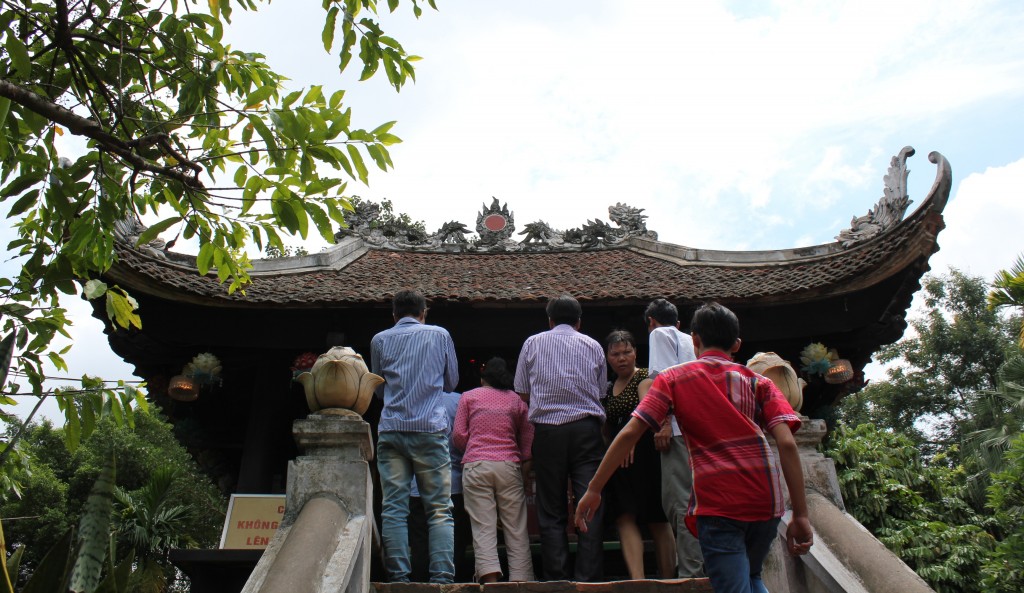
Đó là những hình ảnh rất phổ biến của những khách du lịch và địa điểm du lịch tôi gặp trên đường suốt hai tháng qua ở Sài Gòn, Tây Ninh, Đà Lạt, Nha Trang, Đà Nẵng, Hội An, Quảng Nam, Huế, Hà Nội, Ninh Bình, Nam Định, Hòa Bình, Bắc Ninh, Lào Cai, Sapa. Qua giọng nói thì họ là người miền Bắc. Là một người nói giọng Huế và giọng Sài Gòn, và học ngôn ngữ, tôi không gặp vấn đề trong việc hiểu được người từ các miền khắp nước Việt Nam, trừ những người nói giọng Quảng Nam và Quảng Trị thật nặng. Do đó tôi biết những khách du lịch tôi gặp là người miền Bắc. Chính xác họ là người xứ nào ngoài Bắc thì tôi không dám chắc, chỉ biết nhiều người trong số họ là người Hà Nội và còn lại là từ các thành phố loanh quanh đó. 95% những khách du lịch tôi gặp trên đường là người miền Bắc.
Đối với những người quen với cuộc sống ở Mỹ, những cảnh tượng la ó và hút thuốc như thế này chỉ làm cho người ta bực mình, chán ngán: một sự ồn ào náo loạn đến mọi rợ. Những người đàn ông đang tự hào vì sự sành điệu của mình trong từng hơi thuốc lá có biết chăng họ đang giết chết từng tế bào một trong người họ, và đang cố tình đầu độc những người xung quanh mình vì hơi thở chết người của họ? Họ biết chứ, nhưng họ không hề mảy may bận lòng. Ở thế kỷ 21, thế không gọi là mọi rợ thì là gì! Những người hút thuốc lá ở Mỹ chỉ được xem ngang bằng con gián hoặc con rệp, chứ không thể so sánh với chó mèo, vì phần lớn chó mèo ở Mỹ là bạn của con người và vị trí của chúng là ngang bằng con người hoặc hơn thế nữa. Vậy cho nên, nếu chỉ nhìn những khách du lịch người miền Bắc mà tôi gặp trên đường để đánh giá thì: thôi rồi một tương lai cho Việt Nam!
Dùng chữ ‘người miền Bắc’ là có phần ôm đồm. Nhưng xin nhắc lại là những người từ miền Bắc có thái độ và cách cư xử tiêu cực như ở trên KHÔNG phải là đại diện cho tất cả người miền Bắc, chỉ là đại diện cho 90% những khách du lịch tôi gặp trên đường ngày nay mà thôi. Mặt trái của câu chuyện về họ là như thế. Giờ hãy xem mặt phải.
Từ mini tới boutique
Ra tới Hà Nội, đi taxi từ sân bay tới khách sạn, bước ra khỏi xe, một anh bellboy ở đâu đã chạy ra mở cửa xe, rồi lấy hành lý từ taxi đem vào trong khách sạn cho mình. Rồi tiếp tân mời mình ngồi, sau đó bưng ra một cái khay trên đó có cái khăn lạnh mà bên cạnh là một bông hoa lan tươi màu tím. Rồi mình được mời uống nước sấu mát lạnh. Các nhân viên khách sạn người nào cũng vui vẻ, lịch sự. Một sự tiếp đón ngoài mong đợi, và bạn được phục vụ như những ‘thượng đế’ thật sự!
Trong suốt hai tuần ở Hà Nội, cứ mỗi lần nhân viên khách sạn thấy mình, cho dù là trước mặt hay sau lưng, họ đều lên tiếng chào: “Chào anh, chào chị, chào anh chị”. Nói chung thái độ phục vụ của nhân viên khách sạn bây giờ là “nụ cười đi trước, tiếng chào đi sau”. Mà đây không phải là khách sạn 4, 5 sao đâu. Là khách sạn 3 sao boutique hotel đấy. Từ khi nào thái độ phục vụ của người miền Bắc nói riêng và người Việt Nam nói chung lại tốt đến như vậy?
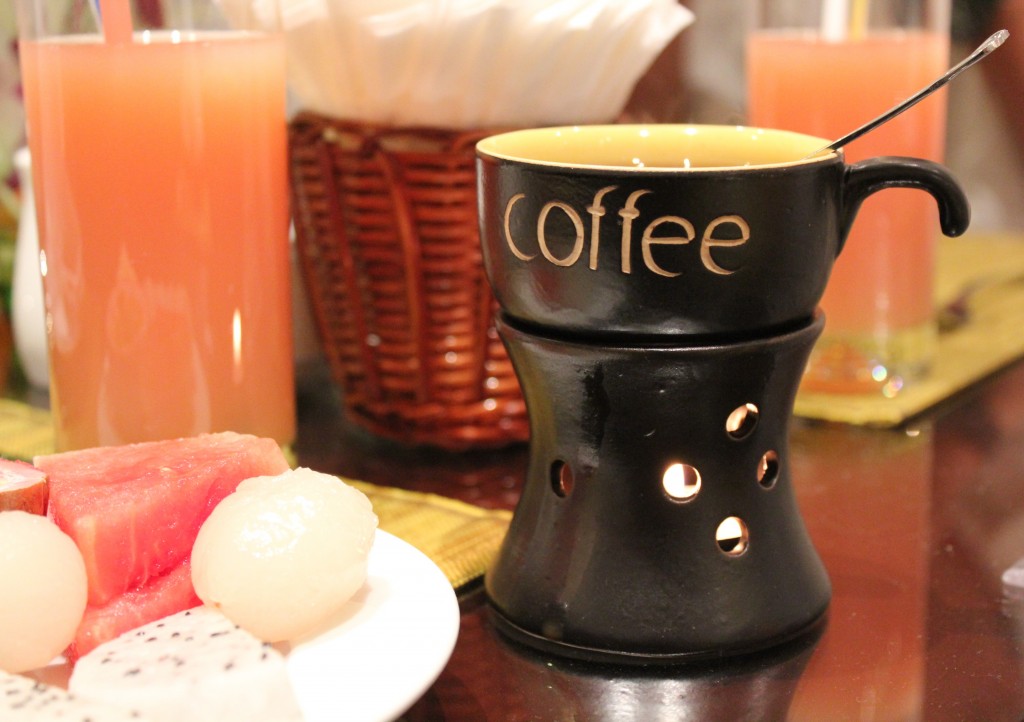
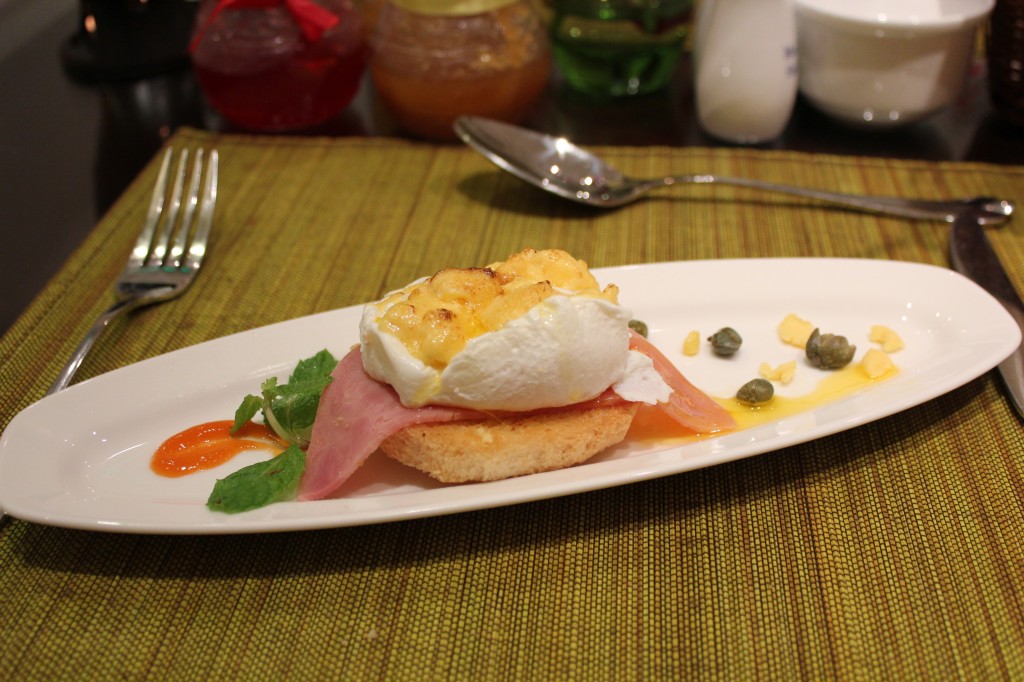
Vào cuối những năm 80 và suốt những năm 90 khi Việt Nam bắt đầu mở cửa giao thương với nước ngoài và đón nhận lượng khách du lịch từ nước ngoài nhiều hơn, những khách sạn mini ở các thành phố lớn như Sài Gòn và Hà Nội bắt đầu mọc lên rầm rộ. Vào thời điểm này, thái độ phục vụ cởi mở hơn của các nhân viên khách sạn loại này được xem như là chuẩn cho khối dịch vụ nhà nước noi theo. Nhân viên khách sạn mini biết cười, lịch sự và thân thiện.
Bước sang thế kỷ 21, sau gần 20 năm mở cửa thị trường, Việt Nam đã nâng cao các tiêu chuẩn chất lượng dịch vụ để hội nhập với thế giới. Sự thân thiện và dịch vụ kiểu khách sạn mini không còn đủ nữa. Khách hàng người nước ngoài cũng như khách du lịch trong nước đòi hỏi một mức độ chuyên nghiệp cao hơn và thái độ phục vụ tốt hơn. Thế là, để hội nhập với phong trào chung của khách sạn boutique trên thế giới, hàng loạt các khách sạn nhỏ, tiện nghi hơn, thân thiện hơn ra đời với một đẳng cấp cao hơn, với một cái tên nghe ‘sang trọng’ hơn: khách sạn boutique (boutique hotel).
Nhân viên khách sạn boutique phần lớn tốt nghiệp đại học hoặc cao đẳng chuyên ngành du lịch hoặc các nhành liên quan. Đầu bếp thì tốt nghiệp trường nấu ăn. Ngay cả nhân viên ở các vị trí mà yêu cầu công việc ít phức tạp hơn như dọn phòng thì họ cũng được huấn luyện một cách chuyên nghiệp để thái độ và cách làm việc của họ thích nghi với môi trường hiện đại và những đòi hỏi mới. Nói chung, họ hiểu tâm lý khách hàng và lấy việc làm hài lòng khách hàng làm tiêu chuẩn hàng đầu. Họ sẵng sàn và vui vẻ đón nhận những góp ý của khách hàng để cải thiện khách sạn mình cho tốt hơn. Vậy có phải là Việt Nam đang đi lên trên con đường phát triển và dân chủ? Tôi không dám đưa ra dự đoán gì về chuyện này nhưng hiện tượng khách sạn boutique làm tôi suy nghĩ.
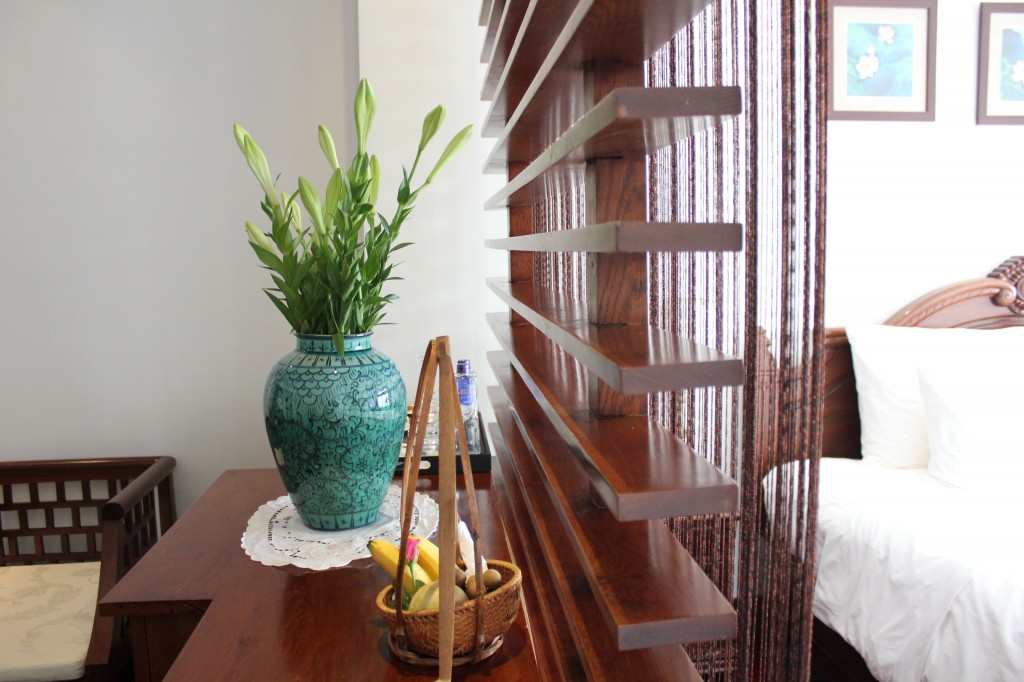
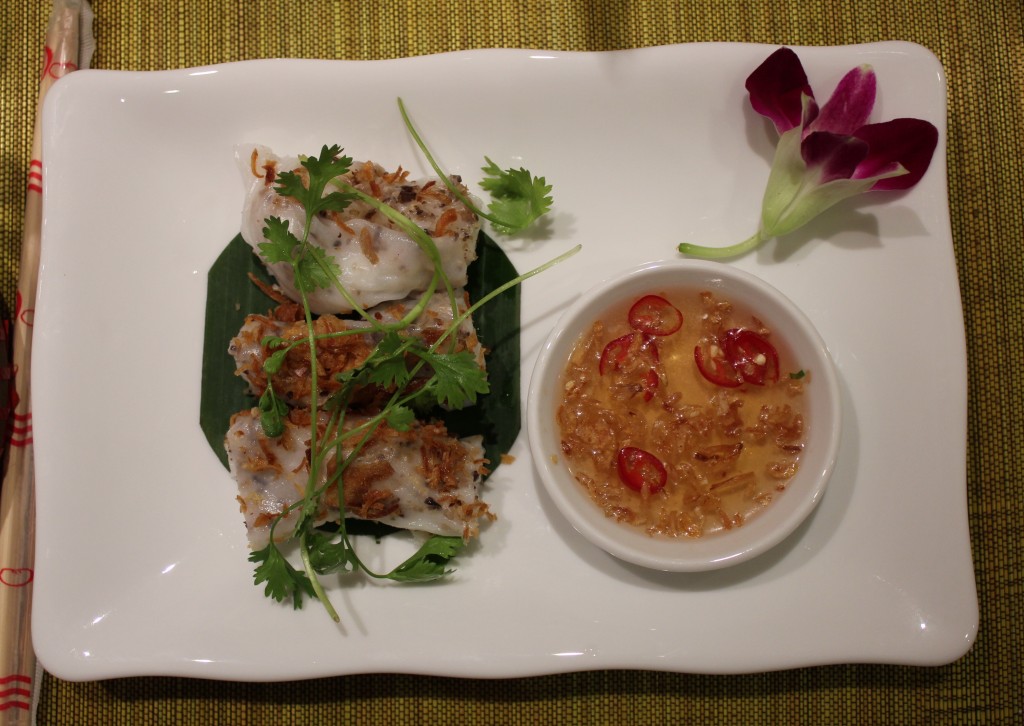
Tương lai
Mặc dù khách sạn boutique có ở khắp các tỉnh thành Việt Nam, chất lượng dịch vụ của khách sạn ở Hà Nội có phần nhỉnh hơn ở những nơi khác. Ví dụ, trong khi phần lớn khách sạn 3, 4 sao ở Sài Gòn, Đà Lạt, Nha Trang, Đà Nẵng, Hội An, Huế chỉ có thái độ phục vụ và các dịch vụ ngang mức sao của mình hoặc thấp hơn, hầu hết các khách sạn 3 sao ở Hà Nội có thái độ phục vụ và dịch vụ cao hơn mức sao của mình, một số có thể xếp ở tầm 4-6 sao. Chỉ cần lên các trang mạng du lịch tham khảo những bình luận và đánh giá của khách hàng về những khách sạn ở các khu vực này sẽ thấy ngay. Thông thường khách sạn 3 sao chỉ được đánh giá ở mức 7/10, với nhiều lời khen chen lẫn lời than phiền, góp ý, khuyến cáo đủ kiểu. Các khách sạn 3 sao ở Hà Nội thì khác, những khách sạn với đánh giá 7/10 là thuộc loại hiếm. Phần nhiều khách sạn nhận được đánh giá 8/10 và cao hơn thế. Rất nhiều khách sạn được 9/10 hoặc cao hơn.
Tại sao lại có sự khác biệt như thế giữa các khách sạn boutique ở Hà Nội và các thành phố khác ở Việt Nam? Có phải người Hà Nội nói riêng (người miền Bắc nói chung?) đòi hỏi cao hơn về chính mình cho nên chất lượng dịch vụ của họ tốt hơn? Phải chăng họ tinh tế hơn nên để ý đến những chi tiết nhỏ nhặt giúp phục vụ khách hàng tốt hơn và nâng cao chất lượng quản lý và điều hành? Phải chăng việc họ ồn ào không coi ai ra gì là biểu hiện của sự bạo dạn (aggressive) – là một yếu tố không thể thiếu trong quá trình phát triển, đã giúp họ chiến thắng trong cuộc chiến tranh 1975 và nay đang đi đầu trong khối khách sạn boutique? Có phải là họ tự tin và liều lĩnh hơn mà mỗi lần nói chuyện với người miền Bắc và hỏi họ về mối đe dọa từ nước Tàu bên cạnh họ đều dứt khoát nói rằng “chúng tôi sẽ đánh và thắng”? Hoặc nhìn xa hơn và táo bạo hơn: Nếu nhìn vào việc khách sạn boutique ở Hà Nội đang hoạt động vô cùng tốt mà xét đoán, cùng với sự kiện là người từ miền Bắc bây giờ di cư ồ ạt về phía Nam, thì liệu có ai dám nói tương lai Việt Nam đang trên đường đi xuống hay đi lên? Cuối cùng lại thì Việt Nam ngày nay bắt nguồn từ miền Bắc rồi mở rộng về phía Nam. Tôi muốn hỏi những con dân yêu nước miền Bắc: “Tiếp theo sẽ sao đây?” Ôi, những câu hỏi!
Trên đây chỉ là một số nhận xét. Việc nghiên cứu sâu xa để có thể đưa ra những câu trả lời chính xác là một chuyện khác. Quý vị nghĩ thế nào?
–
Anvi Hoàng sinh ra và lớn lên ở Việt Nam, sang Mỹ học cao học. Hiện cô sống ở Bloomington thuộc tiểu bang Indiana. Anvi viết thuần thục cả tiếng Anh và tiếng Việt. Hai cuốn sách sắp xuất bản của cô là: Hành trình một vở opera: Quá trình sáng tạo Câu Chuyện Bà Thị Kính, và Journey of an Opera: The Creation of The Tale of Lady Thị Kính. Anvi đang viết hai cuốn sách mới mang tựa đề Cam: Chosen Path of a Vietnamese Woman và Cam: Con đường lựa chọn của người đàn bà Việt Nam.
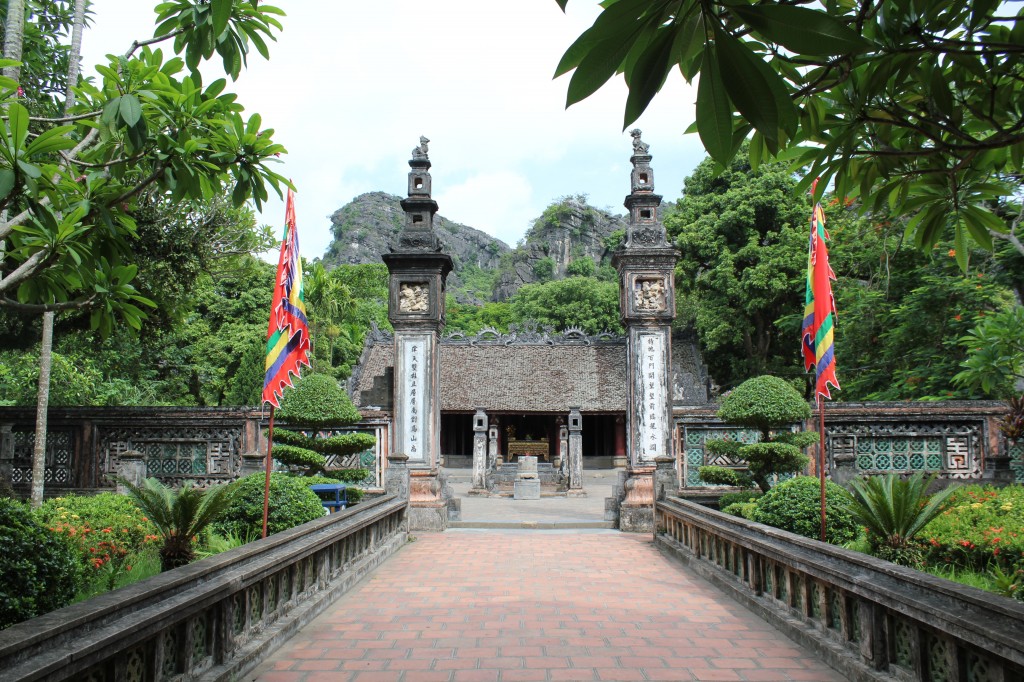
People from the North
Travelling in Vietnam these days, one could not help but notice that most local tourists they encounter are from the North. Ninety-five percent of the tourists that I met during my two months of travels from Sài Gòn to Sapa are from the northern regions of Vietnam. Are they “cute Northern girls” in a song of Phạm Duy’s who can steal your heart in a flash? Are they elegant like imperial citizens of the old days? Without trying to be poetic, I only present some observations.
The tourists
Imagine: the children running wild yelling at the top of their lungs, their parents calling out for them from a distance. Together, they are loud enough to drown out the street vendors’ own voices making the latter frown in irritation. In the quiet of the mountains and the temples, they sound like broken speakers in Hà Nội that force their way into one’s daily schedule every morning at six. In the restaurant, many of these adult tourists put both their legs on the chair while eating. At the airport, they would push you aside to get in the front for check-in, to get into the transition bus, or to get on and off the airplane. In the meantime, whether at the church or the temple, in the air-conditioned coffee shops or the fancy restaurants; whether it is before the meal, during the meal, or after the meal, the men are puffing away at cigarettes with joy and eagerness the same way children enjoy their moms’ candies. Strangely enough, in most restaurants, smokers like them are rewarded with the balcony view seating while non-smokers are tucked inside, in the corners.
These are very common sights I observed as I was moving around in Sài Gòn, Tây Ninh, Đà Lạt, Nha Trang, Đà Nẵng, Hội An, Quảng Nam, Huế, Hà Nội, Ninh Bình, Nam Định, Hòa Bình, Bắc Ninh, Lào Cai, Sapa. Hearing these tourists talking, I know they are from the North. As someone who speaks Sài Gòn and Huế dialects, I have no problem understanding people from different parts of the country, except those with very heavy Quảng Nam and Quảng Trị accents, so I know they are from the North – Hà Nội and the surrounding cities. For those of us who are used to the non-smoking environment in the US and the practice of keeping quiet in the public, the noise and the cigarette smoke described above could become a turn-off to our travels. I feel horrible to say this, as if I have unwittingly picked up a piece of the imperialistic mindset after more than ten years living in America, but I seemed to witness the presence of barbarous traits and chaos all over Vietnam. And the men surely do know they are killing themselves slowly and softly, at the same time poisoning people around them, but they don’t seem to care. Maybe they don’t believe in the scientific studies of the 21st century regarding smoking. I call that attitude barbaric. If I want to curse them, I cannot compare them to cats or dogs the way Vietnamese people often do to stigmatize uncultured people. It does not make sense to me anymore because in the US dogs and cats are our friends and they have their own rights. It does not even make sense to the pet owners in Vietnam these days who also spoil their pets like their own children. What I could say is that Vietnamese smokers are like parasites such as bed bugs. Nothing short of this name-calling could alleviate my anger.

Yet, I am not trying to espouse the notion that those tourists represent all the people from the North. They only represent ninety percent of the tourists I came across during my two-month travels in Vietnam. Still, just by observing these tourists, in my mind, I visualized a very gloomy picture for the future of Vietnam. But then, that is only one side of the story. Now flip the coin.
From mini to boutique
The taxi arrives at a hotel in Hà Nội and, out of the blue, a bellboy appears and opens the taxi door for you. He (mostly ‘he’) takes your luggage to the lobby and asks you to have a seat. Then another hotel staff member approaches you with a tray on which there are refreshing cold towels neatly rolled and decorated on top with fresh purple orchid flowers. Still another staff member comes and offers you nước sấu, a traditional Hà Nội cold drink. (In fact, the sweet-salty-and-sour drink is made from pickled sấu, the kind of fruit found in Hà Nội only.) You are served like kings and queens. All the staff members are smiling and friendly. An unexpected welcome, indeed, considering the negative impression I have had of the Northern tourists. In fact, during my twelve-day stay in Hà Nội, every time hotel staff caught sight of me, whether in the front or just my back, they would say “Hi.” It seems their new standard treatment to guests is “first to smile, then to greet.” Or the other way around. In any case, they are very friendly and courteous. This is not a welcome you received from a four- or five-star hotel. You actually arrived at a three-star boutique hotel in Hà Nội. I could not help wondering when the service and attitude of hotel staff in Hà Nội started to improve that dramatically.


In Vietnam, boutique hotels are a new version of privately-owned mini hotels that mushroomed in the late 80s and the 90s as the country started the economic reforms that led to the free market environment as it is today. During that time, compared to the lagging governmental sector, the staff at mini hotels offered the level of service deemed desirable. Mini hotel staff were capable of smiling, friendly and helpful. In the twenty-first century, after twenty years of exposure to the free market, the country has managed to achieve topnotch professionalism in tourist industry to join the international arena. Mini hotels were no longer up to the task of meeting the increasing demands of both foreign and domestic clients in terms of service quality. That is when boutique hotels came into the picture. They are the thing of the twenty-first century in Vietnam and their new name reflects the new time and new level of professional service that hotel staff embody. When asked about their work at a ‘small’ hotel, the staff would tell you that they associate ‘boutique’ with ‘elegance’ – and I can testify that they do represent the latter in the way they carry themselves and conduct everyday business with the guests.
The hotel staff in the areas of marketing, reception, and restaurant are all college or vocational school graduates majoring in Tourism and Cooking. All of them have at least one year of working experience in their respective field. Even staff in an area considered less taxing such as concierge are carefully trained by professionals so that their attitude and manners reflect the spirit and professionalism of the whole team. Young, professional, and with good working ethics, boutique hotel staff members make it their mission to please their guests and customers and make their stay the most enjoyable and memorable. They are willing to take criticism to improve the service of the hotel. Does all this mean that Vietnam is on the right path to prosperity and democracy? I cannot make this strong prediction but I ponder the phenomenon.


The future
Compared to all the boutique hotels I have been to (in Vietnam as well as in Europe), the ones in Hà Nội are one notch better. While three- or four-star hotels in, say, Sài Gòn, Đà Lạt, Nha Trang, Đà Nẵng, Hội An, or Huế usually offer the kind of services and instill in the staff the kind of attitude equal to or below their star level, a large number of three-star hotels in Hà Nội exhibit a four- to six-star service level. Searching for customers’ reviews and ratings of the hotels in those areas bring up noticeably consistent numbers: while three-star hotels elsewhere usually get the rating of 7/10 with praises interspersed with neutral comments and complaints of some sort, most three-star boutique hotels in Hà Nội receive 8/10 rating or above, many get 9/10 or above. Those rated 7/10 are in a minority.
Given the above statistics, I find it interesting to see the differences between the hotels in Hà Nội and the rest of the country and the curiosity that entails. Questions are what I have for now: Is it because Hà Nội people, or the Northerners in general, are more demanding of themselves therefore they are capable of providing higher quality services? Is it because they are more sophisticated with a keen eye for details that they are able to elevate their level of management? Is it because the fact that they are noisy and inconsiderate to others a very sign of aggressiveness, an indispensable ingredient to progress, that has helped them win the controversial war in 1975 and now lead the boutique hotels’ growth trend? Is it because they are more assertive and high-spirited that whenever I had a chance to talk to some locals and raised my question about what they think of the potential threats from China, they all gave me a confirmative we’ll-fight-and-win response? To pose a bolder question yet: by looking at the exceptional operation of the boutique hotels in Hà Nội and the fact that people from the North have recently been migrating South in huge waves, can anyone really say whether the future of Vietnam is getting brighter, or darker? After all, Vietnam as a country it is today originated in the North then expanded with southward movements. So, to those true patriots from the North, “What is the next move?” is my final query.
–
Anvi Hoàng grew up in Vietnam. She came to the US for graduate studies and has found her second hometown in Bloomington, IN. She is a bilingual writer in English and Vietnamese. Her books Journey of an Opera: The Creation of The Tale of Lady Thị Kính and Hành trình một vở opera: Quá trình sáng tạo Câu Chuyện Bà Thị Kính are forthcoming. Anvi is currently working on two new ones tentatively titled Cam: Chosen Path of a Vietnamese Woman and Cam: Con đường lựa chọn của người đàn bà Việt Nam.
____________________________________________________________
Do you enjoy reading diaCRITICS? Then please consider subscribing!
Please take the time to share this post. Sharing (on email, Facebook, etc.) helps spread the word about diaCRITICS. Join the conversation and leave a comment!
Do you think that in every country people from the North and the South are so different in many ways? What is you experience with people from the North of Vietnam?
____________________________________________________________



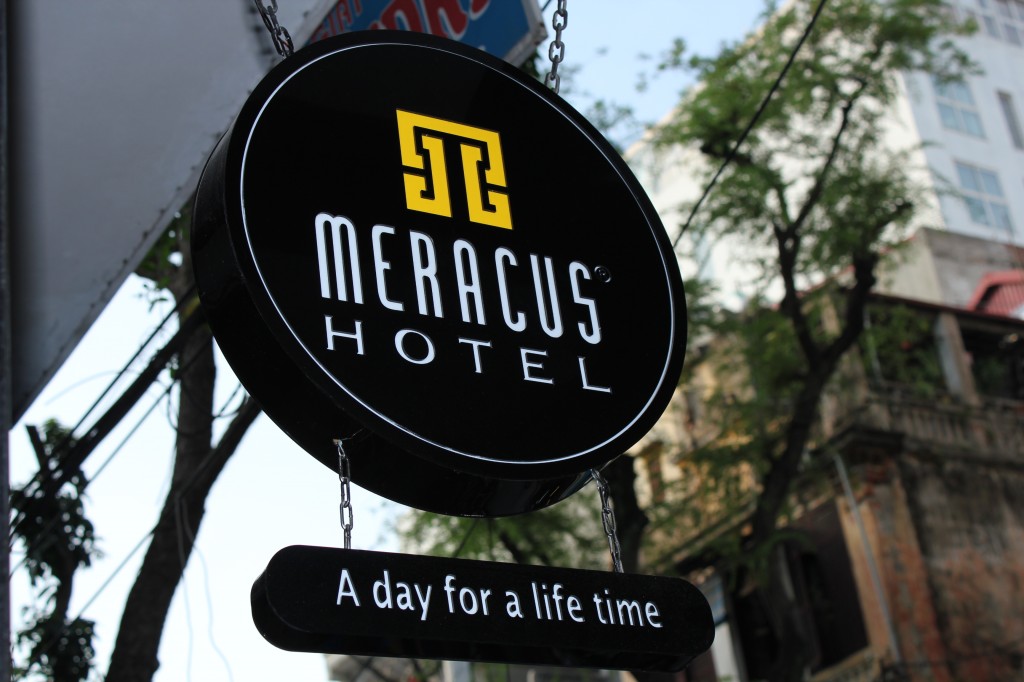

Should I say I feel a bit cheated reading Anvi Hoàng’s Người Miền Bắc? The title itself would suggest a deeper understanding and treatment of the Northern inhabitants than just a ‘kamikazé’ attack, and then the jarring extreme sampling of Hanoi boutique hotels (the one Meracus!) that could not justifiably be representative of the hospitality industry of Hanoi.
“Chẳng thơm cũng thể hoa nhài – Dẫu không thanh lịch cũng người Tràng An” (If it is not fragrant than at least it could be like the jasmine – If one’s not elegant or gracious then at least one is a Tràng An inhabitant)”
The origin of the above 6-8 couplet is rather involved, to understand it would require at least as long an essay as this short treatment of Người Miền Bắc, but what it usually portrays is believed to be the civilized and gracious Hanoians ̣(of old!). Although Tràng An was the glorified ancient capital of China, it’s usually equated with the first capital Hoa Lư of Đinh Bộ Lĩnh, which for a long time its torch had passed to Thăng Long, believed to be the center of learning and erudite culture. Yet in the 3/4 of a century of ‘egalitarian’ and proletariat institution of the Socialist utopia, Hanoi has become anything but the sophisticated and civilized customs and mores city of the Ascending Dragon, a historical “Return of the Sword Lake”country once learned and gentle people from all regions of al Indochina flocked to.
One cannot deal with a topic of the Vietnamese Northerners by enjoying flowers on horseback “Cỡi ngưạ xem hoa”. The piece seems disjointed mixing habits and hotels with the political query at the end although the author smartly invites readers to dig deeper: “Trên đây chỉ là một số nhận xét. Việc nghiên cứu sâu xa để có thể đưa ra những câu trả lời chính xác là một chuyện khác. Quý vị nghĩ thế nào?”